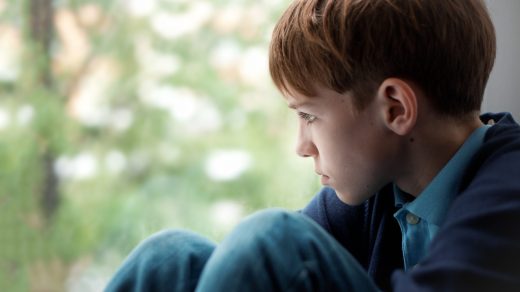New report reveals critical links between physical activity and children’s wellbeing

New analysis released during Mental Health Awareness Week by children’s charity the Youth Sport Trust has placed an economic value on the critical importance of free-to-access school sport and physical activity for a child’s mental wellbeing.
The analysis, conducted by social impact consultancy State of Life, shows the provision of access to free physical activity in both primary and secondary schools is worth at least £4.5bn each year in improved life satisfaction, happiness and wellbeing amongst young people and is likely to be double this.
The calculation is based on the Treasury-recommended measure of wellbeing – the WELLBY, which states that a plus 1 point movement in life satisfaction per annum is worth £13,000 in economic value.
By analysing the Sport England Active Lives Children and Young People data set, which measures levels of physical activity alongside positive attitudes, wellbeing, individual and community development and engagement in sport and physical activity, State of Life concluded that being physically active for half an hour a day in school has a +0.084 effect on happiness for year 3-6 children (age 7 – 10) and a +0.149 effect on life satisfaction for year 7-11 (age 11-16) young people.
Demographic, socioeconomic factors and physical activity levels outside of school have been controlled for in the analysis of the uplift in satisfaction.
According to the WELLBY value, these uplifts in happiness and life satisfaction are worth on average £1,100 per year for a primary aged child and £1,900 per year for a secondary aged child.
Commenting on the release of the report, Youth Sport Trust national school sport champion and Olympic gold medallist, Sir Mo Farah, said: “As this new report shows, getting kids active through PE and school sport is vital to improve their physical and mental health.
“Not only does being active help children grow up happy, healthy and ready to learn, but it can help schools tackle challenges around attendance, engagement and behaviour.
“As the Youth Sport Trust’s National School Sport Champion, I launched Mo’s Mission to ensure all children and young people get 60 minutes a day of PE, sport and play.
“This reports shows the huge impact physical activity can have, so I want everyone to join me and think about how we can inspire all children and young people to get active, get well and have fun.’’
Ali Oliver MBE, chief executive of the Youth Sport Trust, said: “We know physically active children have better wellbeing and are in turn happier, healthier and do better in the classroom.
“This new report by the Youth Sport Trust and State of Life puts an economic value on just how significant the impact of being physically active at school is, and reminds us why protecting universal access to PE, school sport and a culture of movement in active and well schools is important to children’s education and development.”
State of Life also looked at the difference in uplifts for certain groups including split-sample regressions for males and females, white versus ethnically diverse communities, disabled and non-disabled respondents, and those receiving and not receiving free school meals.
This analysis found that the relationship between increased wellbeing and doing physical activity at school is considerably larger, almost double, for those children who are disabled (+0.547 uplift versus +0.136 for non-disabled children) or receiving free school meals (FSM) (+0.257 versus +0.189 no FSM) demonstrating that free to access school sport and physical activity is most valuable to those groups who are least likely to access it outside of the school environment.
Adella Dando, partnership manager at Liverpool School Sports Partnership (LSSP), said: “The report by Youth Sport Trust and State of Life offers a tangible measure to the significance and impact of physical activity and sports on children and young people’s wellbeing and long-term happiness.
“As a society, we have been aware of the effects of physical activity on young people, but we can now see the true value of this economically and socially. It is essential that all children and young people, particularly those who struggle with mental wellbeing, have access to physical activities and that schools prioritise this.
Adella added: “At LSSP, we work closely with schools and other organisations to cultivate primary and secondary programmes and workshops that take a holistic approach, enabling young people to learn about the importance of physical activity on wellbeing.
“We are committed to ensuring children and young people across Liverpool are supported both inside and outside of school to participate in physical activities and sports, helping them become happier, healthier and more active now and as they continue to grow and develop.”
You can read the full State of Life report into ‘The social value of free physical activity in schools’ for the Youth Sport Trust here.





